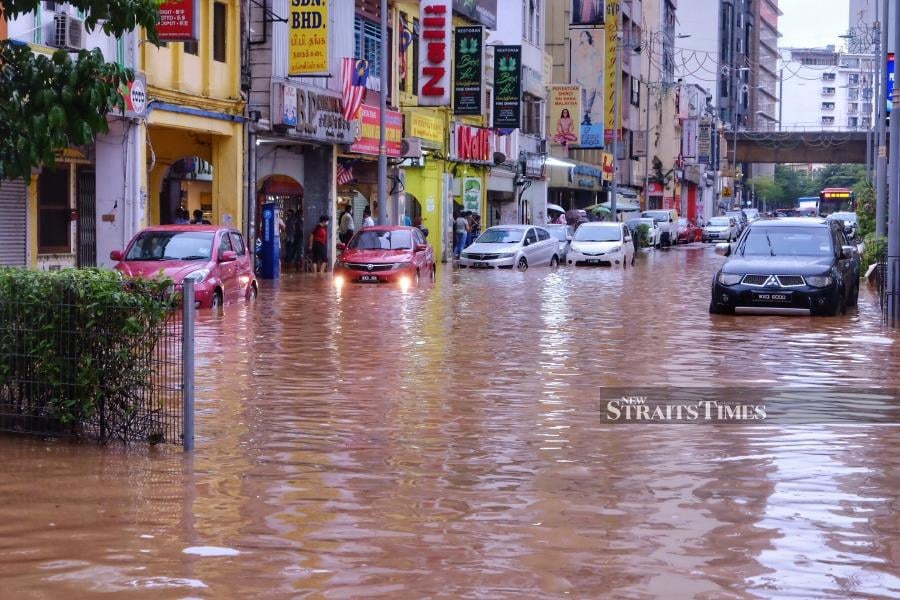Malaysian roads are not turning into rivers, floating vehicles like boats, as it is happening elsewhere in the world. And with ferocious frequency, too.
There was one severe thunderstorm in Kuala Lumpur on Tuesday, though, turning a portion of a busy road in the Golden Triangle into a river.
The "500-year" floods are not here yet, but if they do — like it did in Houston, Texas, in the United States in 1979 and twice later — are we prepared for them?
We know Malaysia, as a signatory of the 2015 Paris Pact, is attempting to arrest climate change, but are our companies — the engine of the country's economy — doing something? Five-hundred-year floods? Over our liquidated corporate bodies, they would say. Why prepare for something which is so rare, those who are climate-blind may ask. Be not surprised. Corporate climate blindness isn't uncommon in the country.
Even for some who can see beyond yesterday's extreme weather events, managing corporate climate vulnerabilities only happens when they begin to hurt financial returns. Call it the bean-counting logic of accounting. And sadly for the shareholders, financial hurt has begun to show up in unexpected places.
This has made it easier for Bursa Malaysia and Bank Negara Malaysia — as part of the Joint Committee on Climate Change — to get companies to manage exposure to climate risks. If their push for climate-related financial disclosures were voluntary before, it would be mandatory from Dec 31 next year.
But Bursa Malaysia may have to deal with a notorious corporate legacy: when things get mandatory, quantity and quality will march to different beats. As Ernst & Young discovered in its 2020 Climate Risk Disclosure Barometer study.
Then — just slightly more than three years ago — climate risk disclosure only had 34 per cent coverage. If coverage was dismal, quality of reporting was even worse at 12 per cent. What this meant was that climate change was acknowledged, but not addressed. Bursa Malaysia must demand more than such feeble progress.
There is also another reason why Malaysian companies — especially the 995 listed ones — must guard against being exposed to climate vulnerabilities.
Credit-rating agencies have begun scoring physical climate risks. Companies that do not keep score to manage their vulnerabilities must be prepared for a rating that will make borrowings more expensive.
The hit can be so severe that credit-positive projects can be quickly downgraded to credit-negative ones. Like it or not, climate change has turned all business into business unusual. Gone are the days when companies could let risks happen first and then scramble to manage it.
Climate calamities such as the dreaded 500-year floods are of different order. They can spell insolvency for the underprepared and unprepared alike. Even the common heatwaves and storms can harm assets. Then there is the all-pervasive thinking that managing climate risks is to reduce carbon emissions.
Our corporate sustainability efforts appear to encourage such a thinking. Carbon emissions reduction is only half the story. The other half is about managing risks to corporate assets posed by a fast changing climate. Picking up the pieces after the deluge is costlier than being prepared for it.





